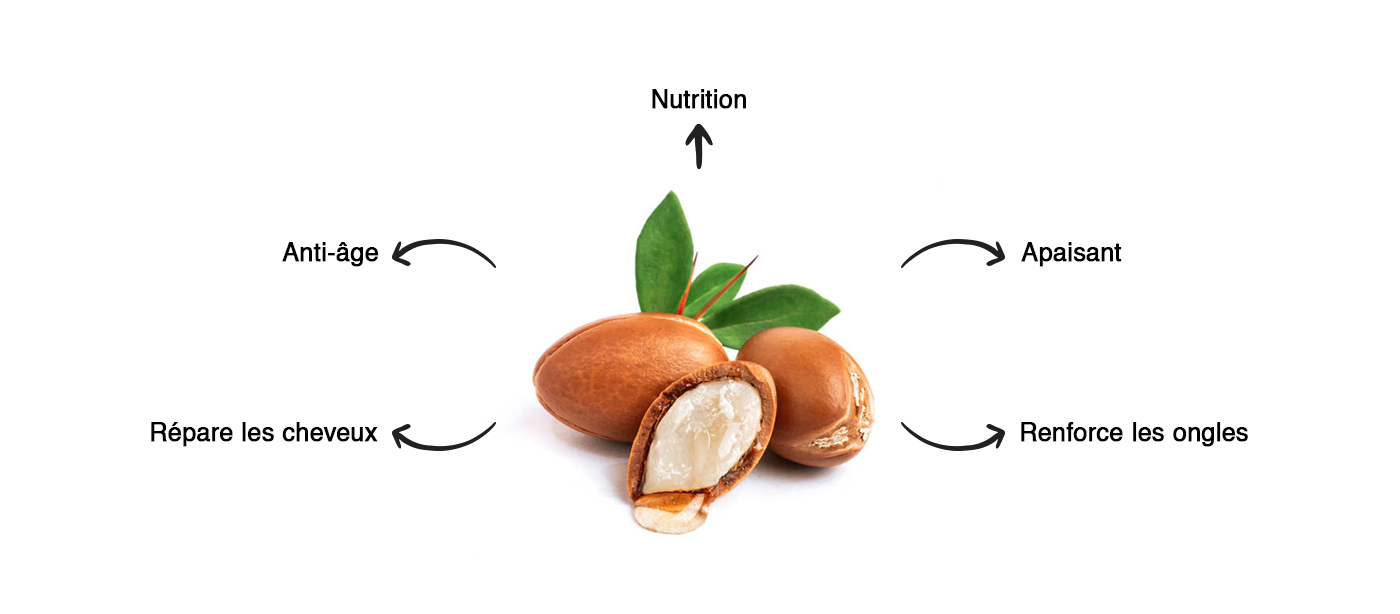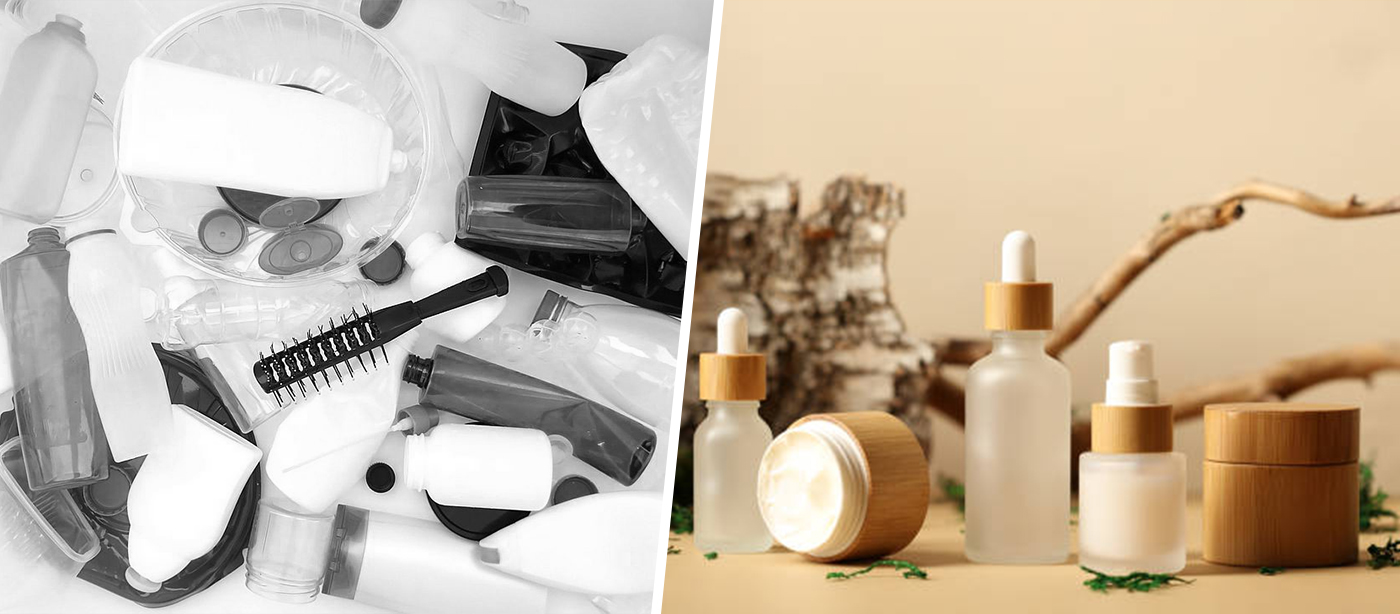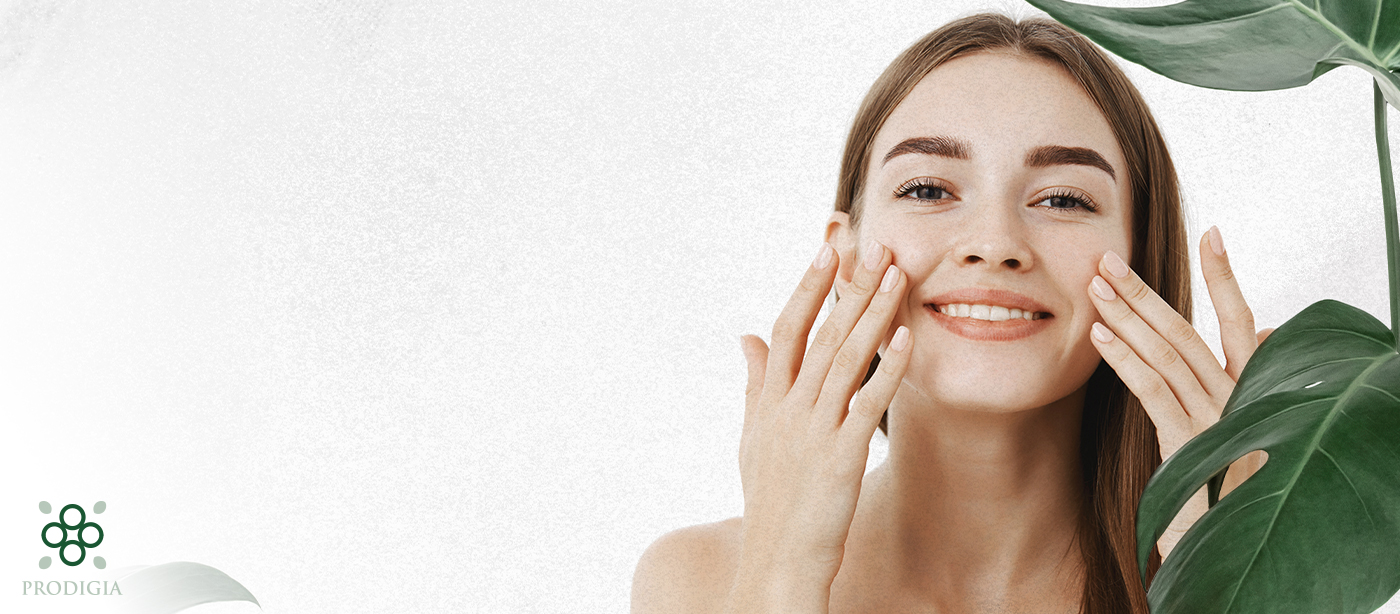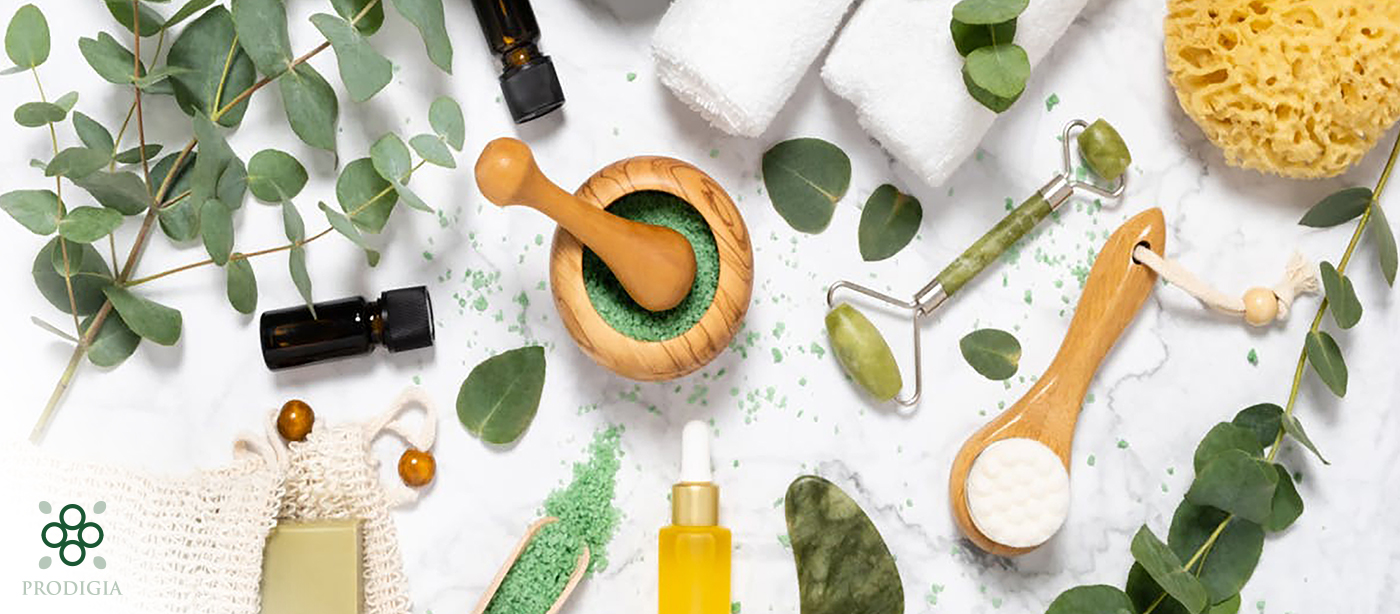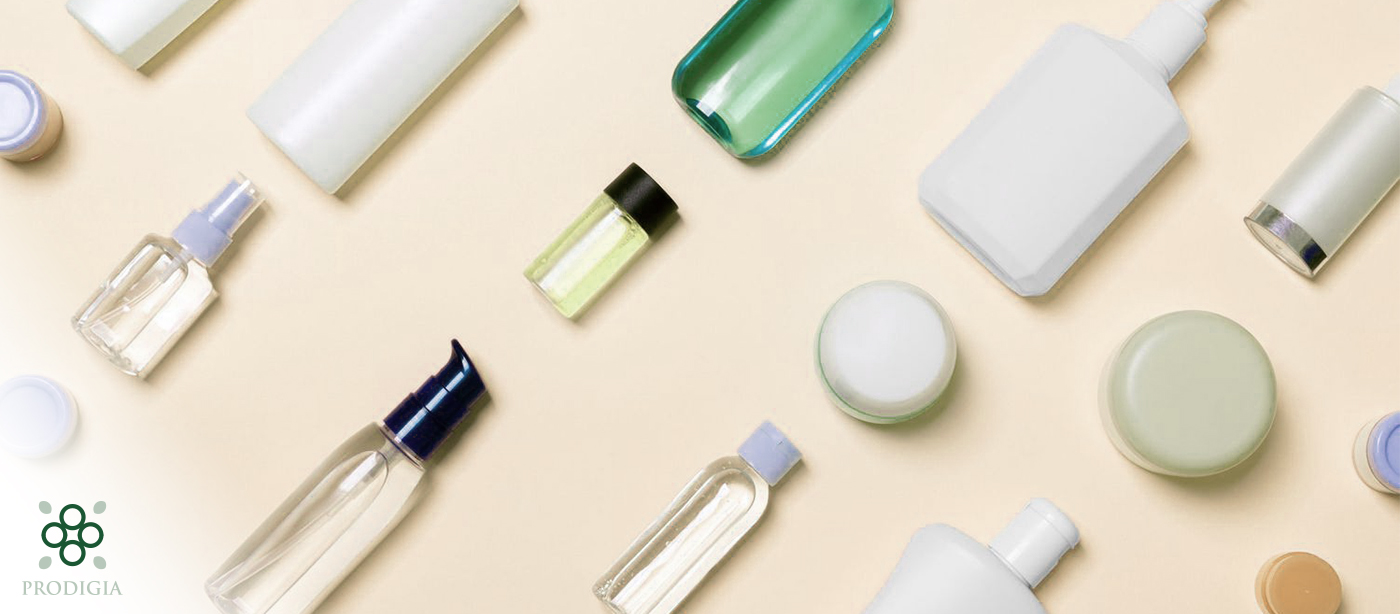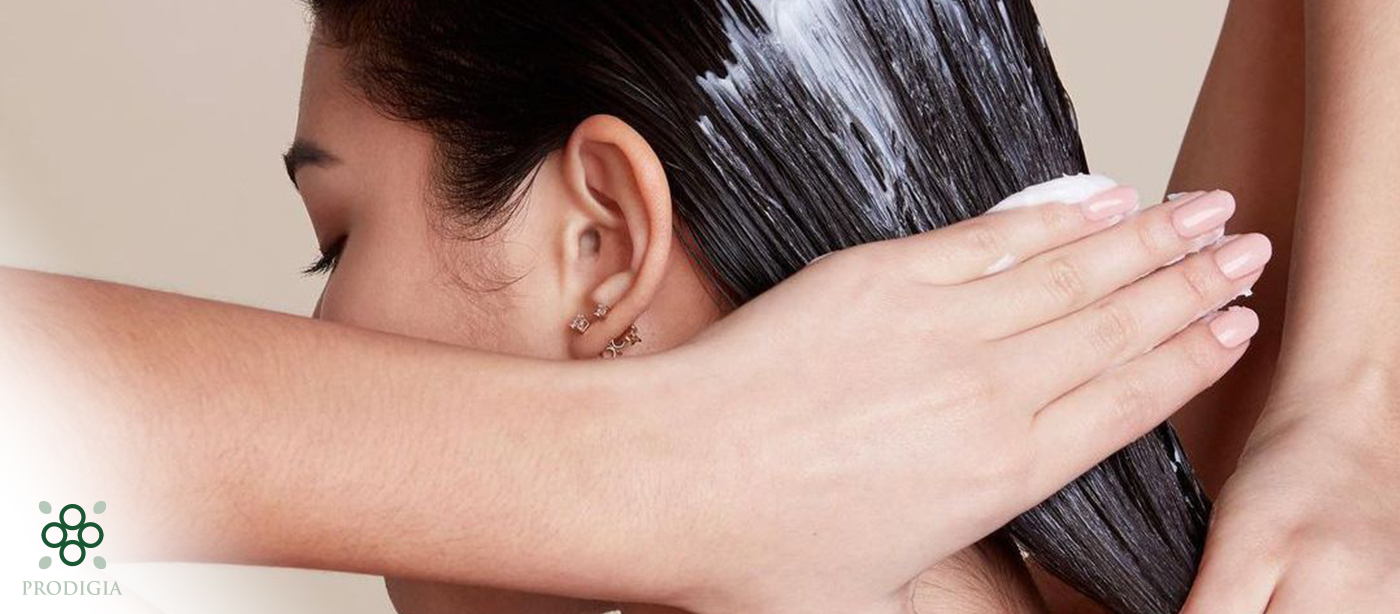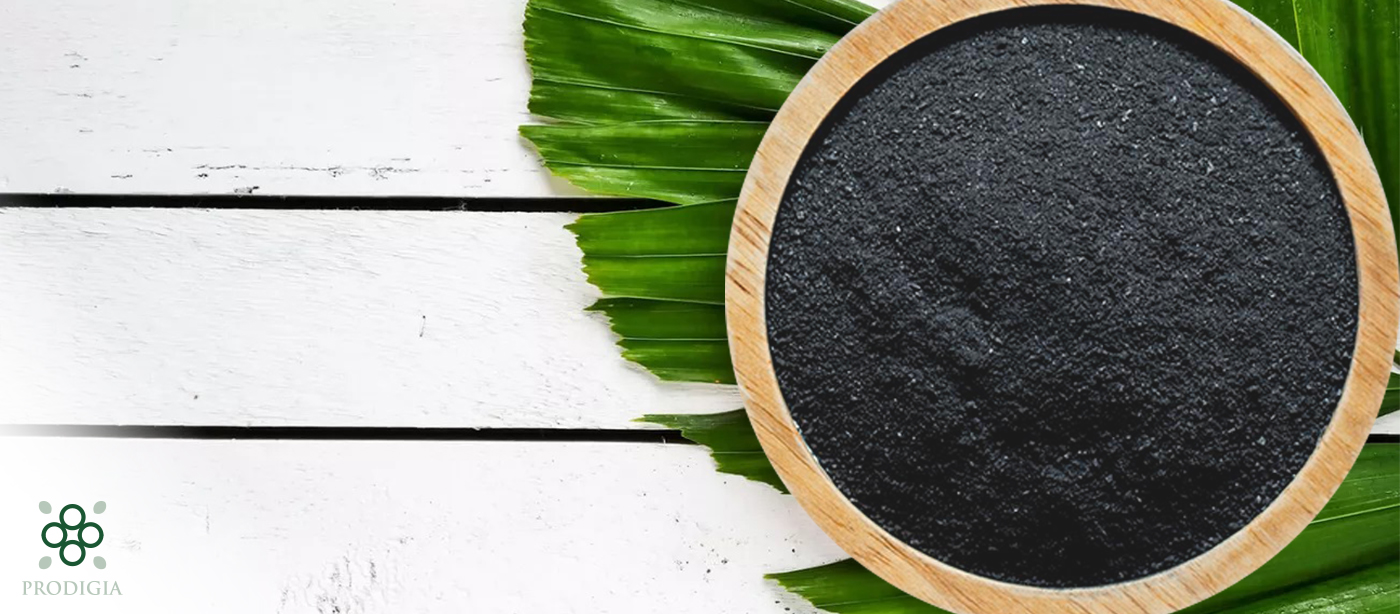Men are increasingly interested in skin and beard care products without perfumes, alcohol or dyes, with particular attention paid to natural ingredients. Focus on current trends and markets to win, what are the benefits of natural skin care and men’s beard? What trends and what future perspectives? The answers are in this article …
Continue reading →Natural cosmetic
Ancestral beauty secret and miracle elixir of Berber women, argan oil is internationally successful. And for manufacturers of natural cosmetics, this oil is a valuable ingredient that deserves special attention. A priceless source of hydration, it presents considerable opportunities to improve your formulations. Why and how to integrate argan oil into your formulations? The answers are in this article …
Continue reading →Natural cosmetics have grown in popularity over the years, and for good reason. A good natural beauty routine leaves its benefits felt outside as well as inside the body. In this article, we will explore the multifaceted benefits of natural cosmetics, ranging from skin health to mental balance, and how these benefits are all interconnected …
Continue reading →The new generation of natural cosmetics customers is more informed, conscious, and eco-responsible than ever! The cosmetics industry now has the responsibility to evolve quickly to meet the new expectations of its fans. This changing mentality has given rise to a growing demand for natural, sustainable and ethical beauty products. In this article, we will explore emerging trends in cosmetics, with a particular focus on the influence of Generation Z and conscious consumers …
Continue reading →In a cosmetic world saturated with trends, “Skin Minimalism” stands out for its simple and natural approach to skin care. By focusing on the essential steps and eliminating superfluous steps, this approach allows you to take care of your skin effectively while simplifying your daily routine. In this article, we’ll explore the principles of Skin Minimalism, its benefits for skin health, compare it to other trends, and find out how to adopt this approach in our daily lives:
1. Understanding Skin Minimalism:
Skin minimalism can be defined as an approach to skincare that focuses on the essentials and eliminates unnecessary steps. This philosophy encourages getting rid of useless or less effective products, and opting for a simple and effective routine.
The Skin Health Benefits of Skin Minimalism: By reducing the number of products applied to the skin, this approach minimizes the risk of irritation and allergies. By focusing on essential care, the skin can regain its natural balance and radiance.
Comparison to Other Skincare Trends: Skin minimalism stands apart from the trend of multi-step skincare routines that can sometimes overload the skin with too many products. By focusing on a few key steps, this technique promotes a gentler, skin-friendly approach.
2. The Key Steps of Skin Minimalism:
Identifying the Essential Steps of a Minimalist Skincare Routine: A minimalist skincare routine generally consists of three essential steps: cleansing, moisturizing and sun protection. These three steps make it possible to take care of the skin on a daily basis without overloading it with unnecessary products.
Tips for choosing simple and effective products adapted to each skin type: When you opt for skin minimalism, it is important to choose quality products, adapted to your skin type. While prioritizing simplicity and effectiveness, look for products with natural ingredients and avoid formulations containing potentially irritating substances. It is important to pay attention to the texture and compositions of the selected products, as well as the degree of sun protection.
3. The overall benefits of “Skin Minimalism”:
Ecological and economic advantages : Skin minimalism contributes to reducing waste by avoiding the accumulation of useless products. By opting for quality and multi-functional products, you will also save on your skin care product expenses in the long run.
The link between “Skin Minimalism” and Self-Esteem: Skin minimalism encourages acceptance of one’s natural skin and highlights the simplicity of authentic beauty. By focusing on a simple skincare routine and embracing your skin as it is, this approach can boost self-esteem and foster a positive relationship with our appearance.
At Prodigia, our formulas are composed of at least 95% natural ingredients and are developed in accordance with Cosmos standards.
Need advice? Contact Prodigia!
The beauty industry is reinventing itself to address consumer concerns that are increasingly revolving around sustainability and environmental consciousness. The concept of Conscious Beauty is emerging, highlighting values such as sustainability, the use of natural and organic ingredients, ethics, and fair trade. What parameters should your brand integrate to operate in conscious beauty? And how important is it to make informed choices for our well-being and that of the planet? Find the answers in this article:
1 - "Conscious Beauty", sustainable and ethical:
What is this ? Conscious beauty goes beyond aesthetic appearance to emphasize products and practices that respect the health of the skin, body, and our environment. This involves prioritizing formulations and processes that are nature-friendly, as well as positioning your brand as one that adopts a holistic approach to sustainability.
The sustainability challenge: The beauty industry has a significant impact on the environment. It is therefore crucial to promote sustainable practices, such as reducing carbon emissions, preserving natural resources, and promoting biodiversity. Conscious brands are committed to minimizing their ecological footprint while offering high-quality products.
Ethics and fair trade: Conscious beauty also encompasses values of ethics and fair trade. Brands committed to this approach ensure fair and safe working conditions for their employees, support local communities, and encourage fair business practices throughout their supply chains.
It is also crucial to avoid false claims and misleading advertisements of “clean” or “green” products. Dishonest practices such as the use of harmful ingredients and animal testing should be avoided.
2 - What conscious aspects should you prioritize when designing your products?
- Natural and organic ingredients: Natural and organic beauty products are made from plant-based ingredients, free from harmful chemicals. They offer skincare benefits without compromising our health or the environment. When you opt for products based on natural and organic ingredients, you enable your customers to maintain skin balance while supporting biodiversity-friendly agriculture.
You can source your natural raw materials from Prodigia.
- Sustainable packaging: Sustainable packaging plays a crucial role in conscious beauty. By adopting recyclable, biodegradable, and reusable materials, your brand contributes to reducing plastic waste and preserving natural resources. More and more companies are investing in minimal, innovative, and environmentally friendly packaging solutions.
- Certifications and labels: Certifications and labels play a key role in conscious beauty, providing consumers with reliable guidance in choosing environmentally friendly and health-conscious products. Examples of certifications include organic labels, cruelty-free certifications, and recyclable packaging.
Discover our article on certifications and labels: a guarantee of quality for your natural cosmetics brand.
3- What is the future for conscious beauty?
The informed consumer holds the power to make conscious choices: Consumers now have a crucial role to play in promoting conscious beauty. By researching brands, certifications, and labels, they can make informed decisions and choose products that align with their values and needs. By supporting conscious brands, they encourage positive change in the industry.
The challenges of adopting sustainable practices in the beauty industry: While significant progress has been made, the beauty industry faces challenges in its journey toward sustainability. Seeking sustainable sourcing, consumer education, and implementing environmentally friendly practices require ongoing efforts and collaboration among stakeholders. This should not discourage your brand from pursuing sustainability—it’s important to start somewhere.
The future of conscious beauty, emerging trends: The conscious beauty industry is evolving rapidly, with the emergence of new trends such as refillable products, sustainable technological innovations, and recycling initiatives. The future of conscious beauty promises a holistic approach that integrates sustainability, innovation, and well-being.
Conscious beauty is more than just a fleeting trend. It is a movement that is gaining popularity and contributing to creating a more sustainable future for the beauty industry. At Prodigia, our formulas are composed of at least 95% natural ingredients and are developed in accordance with Cosmos standards.
Need advice? Contact Prodigia!
In a rapidly changing cosmetics industry, natural cosmetics enthusiasts are now looking for personalized products that specifically meet their individual needs and preferences. From customizing ingredients to creating unique scents, customizing textures and packaging, customization offers a valuable opportunity for cosmetics manufacturers. Do you want to explore the different facets of personalization in cosmetics? The answers are in this article:
I. Which elements can be customized in a natural cosmetic product?
1. Personalized ingredients, the right ingredient for the right need:
Ingredient customization is a key aspect of personalized cosmetics that allows you to meet the specific demands of different customer segments.
Customers are looking for products that precisely address their skin types, concerns, and needs. By offering the ability to customize ingredients, you meet these specific demands by offering tailored products. This strategy offers you the advantage of distinguishing yourself as a manufacturer.
You can also offer your customers the reformulation of existing products by adding one or more specific ingredients. The addition of a unique key ingredient transforms a basic product into a unique creation that targets a more specific need for the customer who selects it. Need inspiration? Discover our article on the key Moroccan ingredients to have for your natural cosmetics brand.
2. Personalized perfumes for unique olfactory experiences:
Perfume plays an essential role in beauty products, and its customization allows creators of natural cosmetics to create unique olfactory experiences.
By allowing your customers to choose notes and chords that appeal to them, this paves the way for the creation of personalized products that stand out in the market. Discover our article on perfumes and fragrances in natural cosmetic products for more advice.
3. Custom textures to suit all preferences:
Each client has their own preferences when it comes to cosmetic textures. Some prefer light and flowing textures, while others prefer rich and creamy textures. By offering customization of textures, you can adapt to individual consumer preferences and provide them with a unique experience.
4. Personalized packaging to add a touch of distinction:
The packaging of a product is much more than simple protection. It can become a real differentiation tool. You can offer packaging personalization by adding personalized elements such as the customer’s initials engraved on the bottle, unique designs or even specific messages.
This distinctive visual experience helps boost your brand awareness. Discover our articles on the different parameters to be mastered for successful packaging: Why is the packaging sometimes more important than the product? and How to successfully develop the packaging of your products?
II. Mastering customization: what advantages, what challenges, and what future trends?
1. The advantages of customization for the customers:
When a fan of natural cosmetics gains exclusive access to products tailored to their individual needs, their beauty experience becomes unique. A customer involved in the process of creating their skincare routine is a customer who expresses their individuality. The brand that offers them this luxury is just as individual.
When your brand is able to listen to its customers and respond to their changing needs, it builds their satisfaction and brand loyalty.
From a marketing point of view, the personalization strategy is used to target, satisfy, and retain your customers. It also serves to improve the customer experience. Then from a business point of view, this strategy drives sales up. When a variety of products your brand offers satisfies a variety of customer needs, your sales increase.
2. The challenges of customization in the cosmetics industry:
Despite its benefits, customization also presents challenges for cosmetic manufacturers. Producing custom products at scale can be complex. It could cost you significant investments in terms of technology and logistics. It’s up to you to find the right balance between personalization and profitability to ensure the success of your initiatives.
3. Future trends in customization in cosmetics:
Personalization is gaining popularity in the cosmetics industry and it’s here to stay. In the future, we can expect to see technological innovations that will facilitate personalization, such as the use of artificial intelligence and virtual reality. Manufacturers who invest in customization will be ahead of their competition, start now!
At Prodigia, our formulas are composed of at least 95% natural ingredients and are developed in accordance with Cosmos standards.
Need advice? Contact Prodigia!
Silicones have long been used in the cosmetic industry to give cosmetic products a smooth and silky texture. Following concerns about their environmental impact and their effect on health, a more natural alternative has been developed: silicone-like ingredients. Here’s everything you need to know about silicones and silicone-like ingredients:
I. Silicones
What are silicones exactly?
Silicones are synthetic polymers that have unique properties such as water resistance and their ability to form a protective layer on the skin or hair. They are used to improve the texture, softness, and shine of cosmetic products, but they are also known for their ability to reduce frizz, seal in moisture, and extend the wear of makeup.
How are they perceived in the cosmetic industry?
Among consumers who prefer more natural skincare and haircare products, silicones often have a bad reputation.
For manufacturers, silicones were revolutionary in the 1950s due to the novelty they offered in terms of sensory experience. However, since then, the industry has progressed towards silicone-free technology. Technological advancements have paved the way for new categories of sensory emollients. Today, durable plant-based emollients without silicone are preferred.
Concerns about their environmental impact and their effect on health have led to the implementation of European bans on silicones D4, D5, and D6. In certain circumstances, cyclomethicones are also prohibited by retailers and deemed undesirable by consumer groups.
Why is it bad in reality?
Silicones can be harmful to the environment when they are discharged into wastewater and oceans, where they can persist for years. In addition, some types of silicones can cause skin irritation and health problems such as allergies or migraines in some people.
II. Silicone-like ingredients
Scientific advancement for natural solutions
Fortunately, scientific advancements have led to the development of silicone-like ingredients, natural ingredients that mimic the properties of silicones without harmful effects on the environment or health. These ingredients are often derived from plant sources such as coconut or jojoba oil and are completely biodegradable.
Their origin
Silicone-like ingredients are derived from plants such as sugar cane, corn, rice, and beet. They are produced from natural ingredients, which means they are biodegradable and sustainable.
Their positive effects on skin and hair
Silicone-like ingredients have positive effects on the skin and hair, just like silicones. They provide a smooth and silky texture to cosmetic products while helping to seal in moisture and reduce frizz. Skincare and haircare products containing silicone-like ingredients are also less likely to cause skin irritations or allergic reactions.
At Prodigia, our formulas are at least 95% natural and are developed in accordance with Cosmos standards. Naturally, we have incorporated silicone-like ingredients into the formulation of some of our skincare and haircare products to give them a luxurious texture without the harmful effects of silicones. Our Brightness & Shine Hair Serum and our Day and Night Moisturizing Creams contain natural ingredients such as jojoba oil and argan oil, which help nourish and moisturize the skin and hair without causing irritation.
Need advice? Contact Prodigia!
Hair masks are increasingly popular among natural cosmetic enthusiasts.. What are the main advantages of hair masks? And which natural ingredients best meet each need? All the answers are in this article:
Hydration:
Hydration is essential to give the hair suppleness and shine. Hair masks are particularly appreciated by customers with dry, brittle, and damaged hair.
For optimal hair hydration, it is recommended to prioritize hair mask formulations that incorporate ingredients like:
Glycerin and aquaxyl: they work together to regulate the moisture levels in the hair, ensuring optimal hydration. They help preserve the suppleness and shine of the hair by minimizing water loss
Aloe vera: it possesses moisturizing, soothing, and scalp-regenerating properties due to its rich composition of vitamins, minerals, and amino acids.
Flaxseed: Rich in omega-3 fatty acids, it helps maintain hair hydration by forming a protective barrier around the hair cuticles. It is also rich in antioxidants that help protect the hair against damage caused by free radicals.
Marshmallow root: it exhibits hydrating effects comparable to flaxseed, as it forms a protective barrier around the hair cuticles. This barrier is created by the softening and reparative properties of the mucilages present in marshmallow root, contributing to hair hydration
Nutrition:
Proper nourishment plays a crucial role in maintaining the health and beauty of hair. Specifically, nourishing hair masks are highly recommended for individuals with dry and lackluster hair, as they provide essential nutrients to revitalize and enhance its overall condition.
To achieve deep nourishment for the hair, it is advisable to prioritize hair mask formulations that incorporate vegetable oils and butters. Notably, coconut oil, avocado oil, jojoba oil, and sweet almond oil possess remarkable nourishing properties for the hair. By utilizing these ingredients, you can offer a diverse selection of nourishing hair masks that cater to the unique requirements of your customer base.
Repair:
Hair masks are effective in repairing damaged and brittle hair, including hair prone to split ends, making them highly valued by customers with such concerns,
For intensive hair repair, formulations enriched with marshmallow and vegetable proteins are highly recommended. Marshmallow root, with its abundance of mucilages, possesses softening and repairing properties beneficial for the hair. On the other hand, vegetable proteins play a crucial role in strengthening the hair structure and safeguarding it against external aggressors. By offering a diverse range of repairing hair masks, you can cater to the specific needs of each client, ensuring their satisfaction.
Discover Prodigia’s Hair Mask, which hydrates, improves hair softness and shine, and prevents split ends. The mask is available in White Label. Need advice? Contact Prodigia!
Activated charcoal, also known as activated carbon, is a type of charcoal that has been treated with oxygen to make it porous. This process gives it excellent adsorption capacity as well as purifying and detoxifying properties. What is Activated Charcoal? What are its well-being and cosmetic uses? Please find all the answers below :
Activated charcoal: what is it?
Vegetable Activated Charcoal is a fine black powder with a neutral odor and taste that is made from plant-based raw materials such as wood, coconut, almond shells, or olive pits. Unlike traditional activated charcoal that can be made from non-renewable sources, vegetable activated charcoal is 100% plant-based, 100% pure and natural, and therefore more environmentally friendly.
When vegetable charcoal is treated with oxygen, it becomes porous and its adsorption capacity is increased. Because of its porosity, it is a powerful adsorbent and detoxifier capable of efficiently absorbing impurities, toxins, and unwanted chemicals from the skin. It is also known to help regulate sebum production, making it an excellent ingredient for oily or acne-prone skin.
What are its uses in well-being and cosmetics?
Activated charcoal soap: Activated charcoal soap is ideal for people with oily or acne-prone skin. Activated charcoal helps to remove excess sebum, impurities, and toxins from the skin, leaving it cleaner and fresher.
Activated charcoal mask: Activated charcoal is the perfect ingredient to incorporate into the formulation of a purifying mask. Thanks to its significant adsorption capacities, it makes this mask a powerful detoxifying and purifying treatment.
Activated charcoal serum: Activated charcoal can be incorporated into serum formulations, combined with other actives such as AHAs and BHAs. As a natural substance known for its purifying properties, it soothes facial skin while mattifying it.
Activated charcoal toothpaste: Vegetable activated charcoal can also be used for oral care, it is recognized for its detoxifying and purifying properties. It sanitizes the mouth and neutralizes bad breath.
The Activated Charcoal Purification Routine :
Here is a routine based on Activated Charcoal that will appeal to fans of natural cosmetics, using the following products:
Cleansing: It is the very first step in any beauty routine, and this activated charcoal soap is ideal for removing impurities and toxins from the skin. Made with only natural olive oil, this liquid soap is very moisturizing and nourishing. In addition to being paraben and dye free, this combination of charcoal and olive oil gently reduces acne with its purifying and anti-inflammatory effects.
Mask: Then, using an activated charcoal mask once a week can work wonders to deeply purify the skin. More than just a detox product, it is a key component of the purification ritual.
Moisturizing cream: And finally, this purifying routine is closed with the use of a moisturizer. Hydrating and nourishing the skin after using products containing activated charcoal is crucial for more radiance.
At Prodigia, our formulas are at least 95% natural and are developed in accordance with the Cosmos standards
Need advice? Contact Prodigia!


